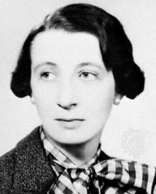 Crime fiction, when it isn't being made too much of -- and here James Ellroy's pastiche of pulp, porn and Chandler comes to mind -- is too often dismissed as mental exercise for the violently timid; sudoku in prose for the hen-pecked, the house-weary and or the otherwise haplessly busy bus-rider with an hour to kill. For such poor souls a good mystery is meant to provide all the requisite distraction of middling TV drama without the expense and small buttons of a portable electronic devise; iphones for the older set.
Crime fiction, when it isn't being made too much of -- and here James Ellroy's pastiche of pulp, porn and Chandler comes to mind -- is too often dismissed as mental exercise for the violently timid; sudoku in prose for the hen-pecked, the house-weary and or the otherwise haplessly busy bus-rider with an hour to kill. For such poor souls a good mystery is meant to provide all the requisite distraction of middling TV drama without the expense and small buttons of a portable electronic devise; iphones for the older set.In a mystery novel, it is understood, plot is all.
Well, that's nonsense of course. In any classic crime novel, the plot, however cleverly contrived, is likely to resolve itself in one of two ways -- call them the Watson replay and the Christie confrontation. In the former, Sherlock explains everything after the fact to the astonishment and great satisfaction of Watson, and the reader. "Ingenious, my dear Holmes!" In the latter, great pressure is put on all the suspects in turn until the culprit -- always present -- cracks and confesses all. "... and I would have gotten away with it too, if it hadn't have been for Miss Marple and that damned ___" (fill in the blank with missing telltale final clue.)
Now for all the pleasure of crackerjack plot, it should be noted that what almost always starts out as the mystery of a single murder has usually doubled or trebled in victims before the detective, however brilliant, has solved the first killing. Murder, it seems, is at least as satisfying as the resulting mystery. Violence, or to put it another way, evil is what great crime novels are about.
So what makes a great crime novel? Certainly not, or not just a clever plot. Chandler, to return to an earlier reference to a great crime writer, writes plots that would confuse and embarrass Encyclopedia Brown. It may be hard to keep in mind, considering his many imitators, but Chandler's writing is as original as anything in the American canon; demotic, weirdly lyrical and deeply, wearily Romantic. The plots of James M. Cain, to use another favorite, if lesser American master for example, are as melodramatically maudlin as the worst daytime drama, but his characters are as hard and his writing as arch as the eyebrows on a two dollar whore. (Sorry, it's almost impossible not to do, you know, when writing about these boys, but I'll stop.)
What makes a great crime novel is what makes any novel great: innovation, sustained invention, seriousness and humor. A book can be good without one or two of those, but it can't be great without all of them.
All of which is preamble to the novels of Leonardo Sciascia. In To Each His Own, Wine Dark Sea, Equal Danger and The Day of the Owl, all now available in English thanks to the heroes of New York Review Books, this great Sicilian novelist has created a series of brilliant crime novels. Sciascia, who died in 1989, was a teacher, a politician, and an unlikely candidate for the pantheon of crime writers. He wrote about the corruption of society by criminality, in public and private life. And he wrote specifically about the mafia, in a time when it's existence was still a matter for polite, or fearful disbelief, at least in public. His books are written in a cynical if sometimes bemusedly angry voice -- very Italian -- and make use of plenty of Sicilian dialect and folk wisdom. (The NYRB translations seem to manage the intricacies of this with surprising smoothness.) But Sciascia's books were written as much as polemic, I suspect, as for pleasure. Doesn't matter now. What matters is that the need for discretion, as he seems to have been writing about real corruption, real politicians and real criminals, and his genuine indignation, produced a remarkably taut and exciting style; effortlessly moving from the traditional police procedural to biting satire with a simple change of often unnamed narrator or location, and always, always using the language of his native place to define the nature of his story and the purpose of his writing. Using the traditional outsider detective in confrontation with the remarkably detailed and deeply foreign culture -- at least to this reader -- of Sicily, Sciascia creates a fascinating, frightening, and ultimately, heartbreakingly intractable puzzle of a place, to which I will, I'm sure want to return again and again.

As in the crime novels of Friedrich Durrenmatt, Sciascia's mysteries, like all great mysteries, are as much or more about the mysteries of the human heart, about evil and the survival of evil in our ever more enlightened times, as they are dark entertainments for a cold, dark ride on the bus -- or an evening at home.







